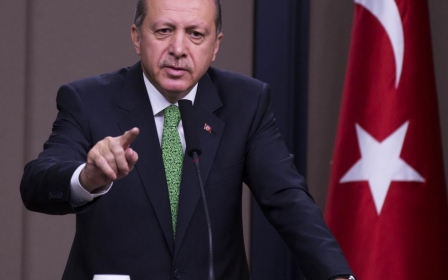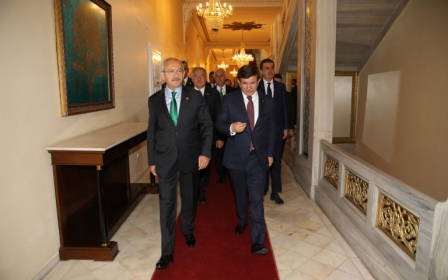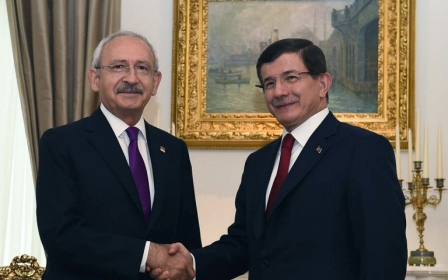Turkey PM Davutoglu says snap elections 'only option'

Turkish Prime Minister Ahmet Davutoglu on Monday said he had exhausted all options to form a coalition government, leaving the country facing snap elections just months after the 7 June polls.
The ruling Justice and Development Party (AKP) lost its overall majority in the legislative polls for the first time since it came to power in 2002, in a major setback for its co-founder President Recep Tayyip Erdogan.
AKP leader Davutoglu met Nationalist Movement Party (MHP) chief Devlet Bahceli in Ankara on Monday in what was seen as a last ditch chance to agree on a coalition government.
But Davutoglu said afterwards that there could be no agreement with the MHP which came third in the June polls.
"Mr Bahceli told me clearly that he saw no possibility to form a government with the AKP," he told reporters in Ankara.
"I did everything and tried all the possible formulae. But there is no path possible for a coalition," he added.
Bahceli also made clear that he did not support propping up any minority AKP government, Davutoglu said.
On Thursday, Davutoglu announced the collapse of several weeks of coalition talks with the second placed Republican People's Party (CHP), saying early elections now looked like the "only option" for Turkey.
It remains unclear when the polls could take place, with some analysts indicating 22 November as a possible date.
New polls will come at a time when Turkey is fighting a cross-border offensive against Islamic State (IS) militants in Syria and Kurdistan Workers' Party (PKK) militants in northern Iraq and risk causing further political and economic uncertainty.
The prospect of early elections again unnerved markets, with the Turkish lira losing 1.16 percent in value against the dollar to hit a new record low of 1.865 lira to the dollar.
New MEE newsletter: Jerusalem Dispatch
Sign up to get the latest insights and analysis on Israel-Palestine, alongside Turkey Unpacked and other MEE newsletters
Middle East Eye delivers independent and unrivalled coverage and analysis of the Middle East, North Africa and beyond. To learn more about republishing this content and the associated fees, please fill out this form. More about MEE can be found here.




